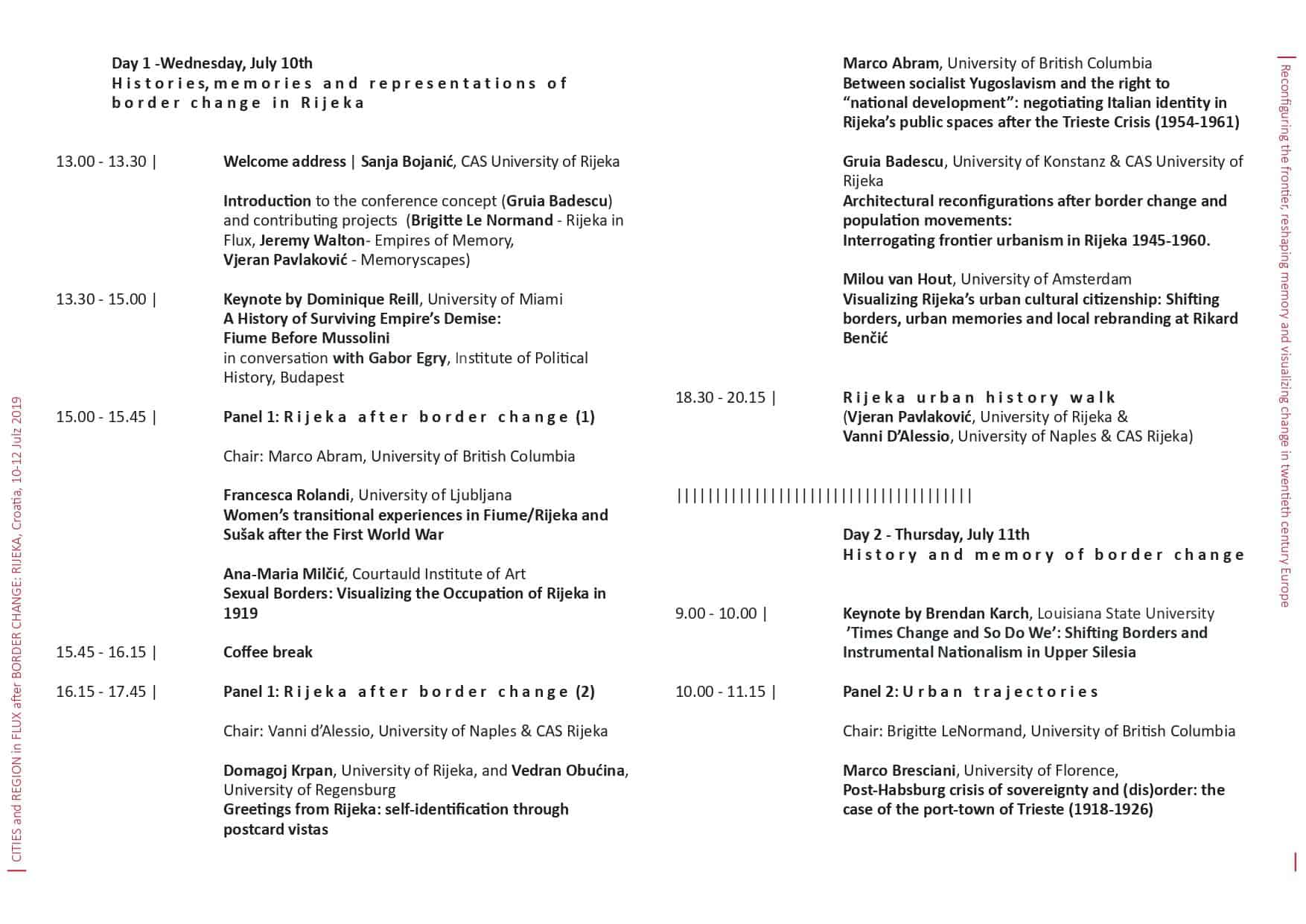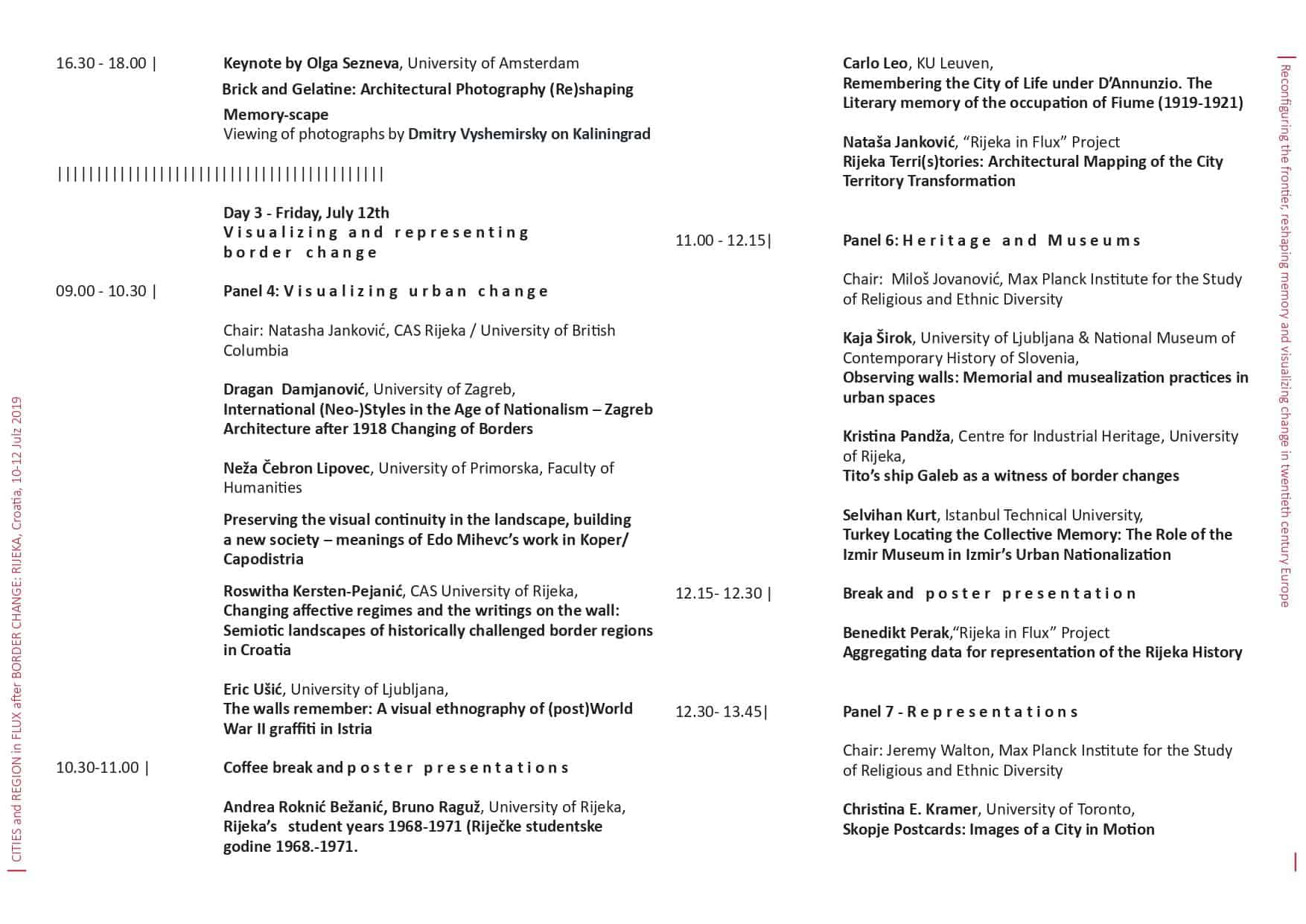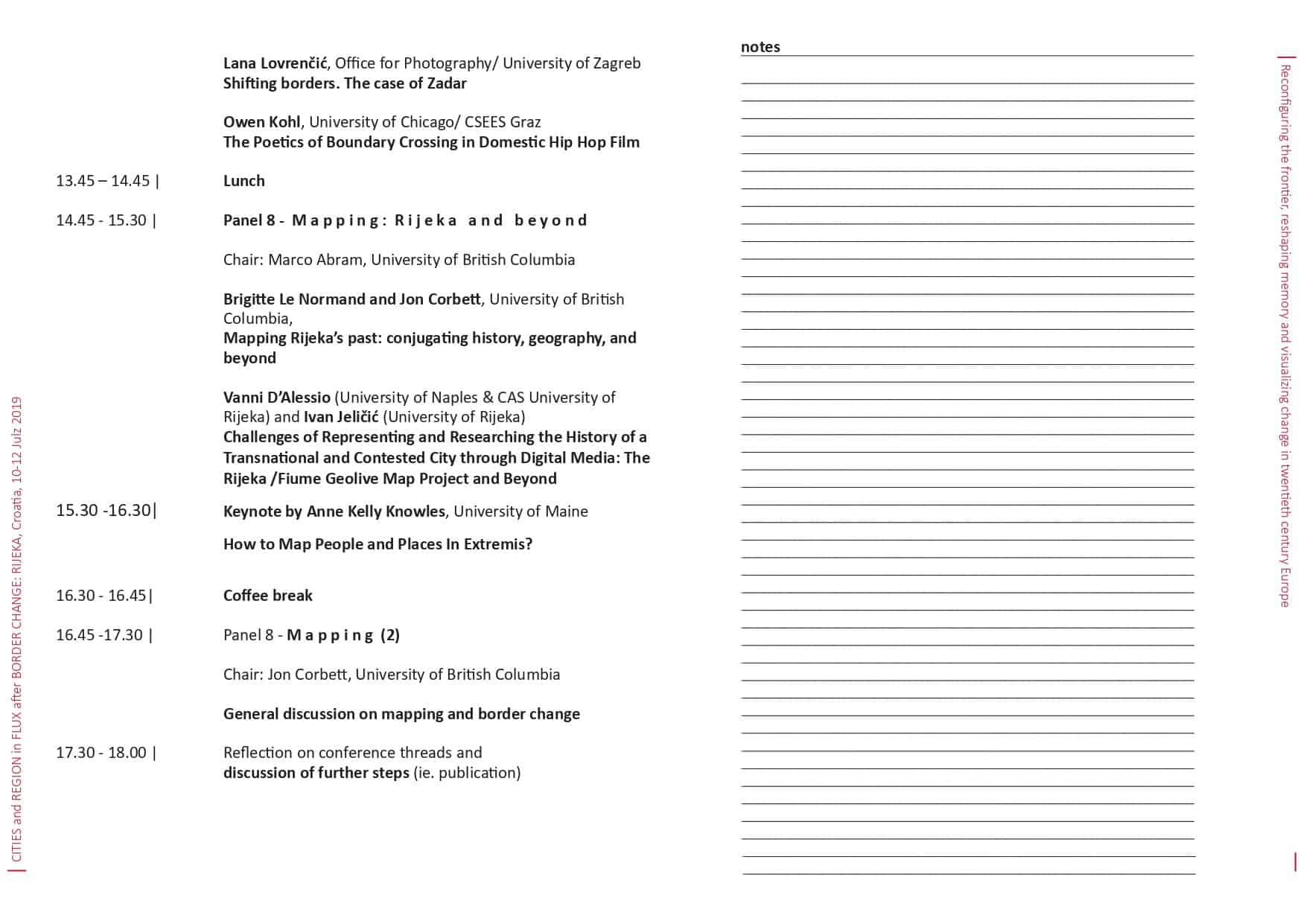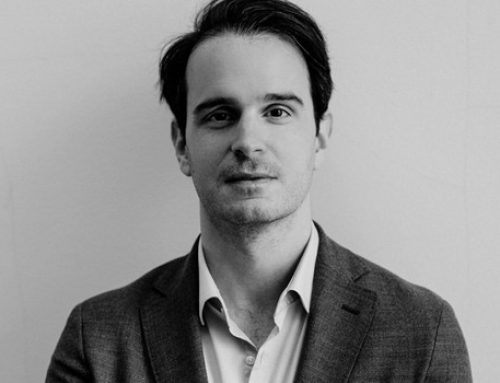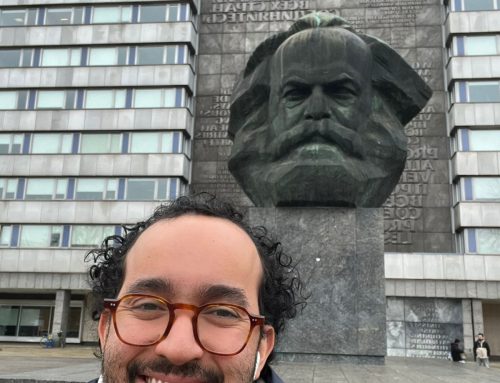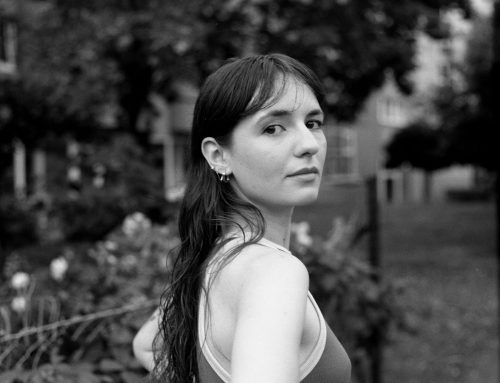International Conference
Rijeka, Croatia, 10-12 July 2019
Venue: Faculty of Humanities and Social Sciences in Rijeka
Address: Sveučilišna avenija 4, 51000 Rijeka (Room 230, 2nd Floor)
Since the end of the First World War, cities and regions in Europe, particularly in the eastern half of the continent, witnessed frequent changes in borders. Previous research on border change and territorial transfers has focused on the actions of nationalizing regimes after the 1919 Paris conference, as well as the post-1945 transfer of territories in East-Central Europe and ensuing flight, expulsions and repopulation programs (Rieber 2000, Ther and Siljak 2001, Ballinger 2003, Crainz Pupo and Salvatici 2008, Snyder 2010, Ferrara 2011, Thum 2011, Reinisch, and White 2011, Ferrara and Pianciola 2012, Service 2013, Sezneva 2013). Recent research has analysed how states appropriated cities and regions they gained from neighbours (Karch 2018), and, in the case of socialist states, used urban remodelling as an opportunity to showcase socialist modernization projects, as occurred in Lviv, Ukraine (Amar 2015) and in Yugoslavia (Kulić and Mrduljaš 2012, Le Normand 2014). While research on transferred cities and territories has tended to see border changes primarily as ruptures tearing people from their old lives and cutting cities off from their previous national frameworks, this emphasis is called into question by scholarship by geographers and sociologists who comprehend cities not as discrete entities but as nodes within regional, national and global networks. From this perspective, cities are spaces in which flows of different types (goods, labour, capital, information) enter, converge, and exit, connecting these cities with other circuits and points across the globe (Massey 1991, Castells 2002, Harvey 2003).
This conference seeks contributions that showcase research on history, memory, and mapping tools in the context of European border changes in the twentieth century. We are interested in highlighting research on the experience of cities and regions that have undergone border changes in the twentieth century in order to showcase histories of transition, to examine the reshaping of local and regional memory practices, and to explore the variety of research methods that might be used to conceptualize and visualize change.
Keynote speakers:
Dominique Kirchner Reill, Associate Professor, University of Miami, author of Nationalists Who Feared the Nation: Adriatic Multi-Nationalism in Habsburg Dalmatia, Trieste, and Venice (Stanford University Press, 2012.) presenting her new book The Fiume Crisis: Life in the Wake of the Habsburg Empire.
Anne Kelly Knowles, McBride Professor of History at the University of Maine, editor of Placing History: How Maps, Spatial Data, and GIS Are Changing Historical Scholarship (2008) and Geographies of the Holocaust (2014), Guggenheim fellow (2015).
Brendan Karch, Assistant Professor of History at Louisiana State University, author of Nation and Loyalty in a German-Polish Borderland: Upper Silesia, 1848–1960 (Cambridge University Press, 2018)
Olga Sezneva, Assistant Professor of Sociology at the University of Amsterdam, whose work has examined the connection between the urban built environment and social memory (particularly in the case of Kaliningrad/Königsberg), human mobility, and digital technologies; part of the artistic collective Moving Matters Traveling Workshop.
Organisers: The conference is organized by the Univeristy of Rijeka, Centre for Advanced Studies – South East Europe, with the support of the Social Sciences and Humanities Research Council of Canada-funded project Rijeka in Flux: Borders and Urban Change after World War II, the Memoryscapes project’s Seasons of Power flagship programme for Rijeka 2020 – European Capital of Culture, and the Max Planck Institute for the Study of Religious and Ethnic Diversity Research Group, “Empires of Memory: The Cultural Politics of Historicity in Former Habsburg and Ottoman Cities”.


